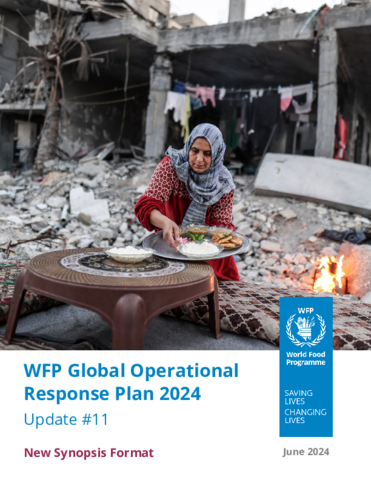
While drivers of food insecurity are interlinked, and the impact of economic shocks and natural hazards have grown in importance in recent years, 65 percent of acutely food-insecure people live in fragile or conflict-affected contexts.
FAO and WFP have jointly warned that between June and October 2024, acute food insecurity is likely to deteriorate further in 18 hunger hotspots. Hotspots of highest concern are Haiti, Mali, Palestine, South Sudan and Sudan.
This year, 309 million people are estimated to face acute levels of food insecurity in the 71 countries with WFP operations and where data is available. This number does not yet account for the expected updated analyses from Sudan and Palestine.
An estimated 37.2 million people across 47 countries will be in Emergency or worse levels of acute food insecurity in 2024, and require immediate emergency assistance to save lives and livelihoods.
An estimated 24.5 million children are predicted to be acutely malnourished in the 15 countries with the highest burden in 2024. The convergence of threats may further increase the number of children and pregnant and breastfeeding women and girls (PBWG) affected by acute malnutrition.
Following a peak in 2022, the current funding landscape is affecting the entire humanitarian sector, forcing WFP – and many others – to scale back assistance and refocus efforts on the most severe needs. As a consequence, nearly all of WFP’s largest operations have reduced or plan to substantially reduce their operational plans.
To adapt, WFP is re-budgeting and continues maximizing available resources, while boosting the efficiency and effectiveness of its work so that programmes get further on every donor dollar.
From January to March, WFP was able to reach 62 million people with food, cash, commodity vouchers, and capacity strengthening. This is 34 percent less compared to the same period last year, mainly due to reduced funding levels compounded by access constraints.
For 2024, WFP has adjusted its plan from 150 million people as shared in the February edition of this report to now 139 million people based on projected needs.
| Document | File |
|---|---|
| WFP Global Operational Response Plan - Update #10 - February 2024 |
PDF | 6.31 MB
Download
|
| WFP Global Operational Response Plan: Update #9 – November 2023 |
PDF | 5.28 MB
Download
|
| WFP Global Operational Response Plan: Update #8 – June 2023 |
PDF | 7.95 MB
Download
|
| WFP Global Operational Response Plan: Update #7 – February 2023 |
PDF | 6.7 MB
Download
|
| WFP Global Operational Response Plan: Update #6 – November 2022 |
PDF | 9.63 MB
Download
|
